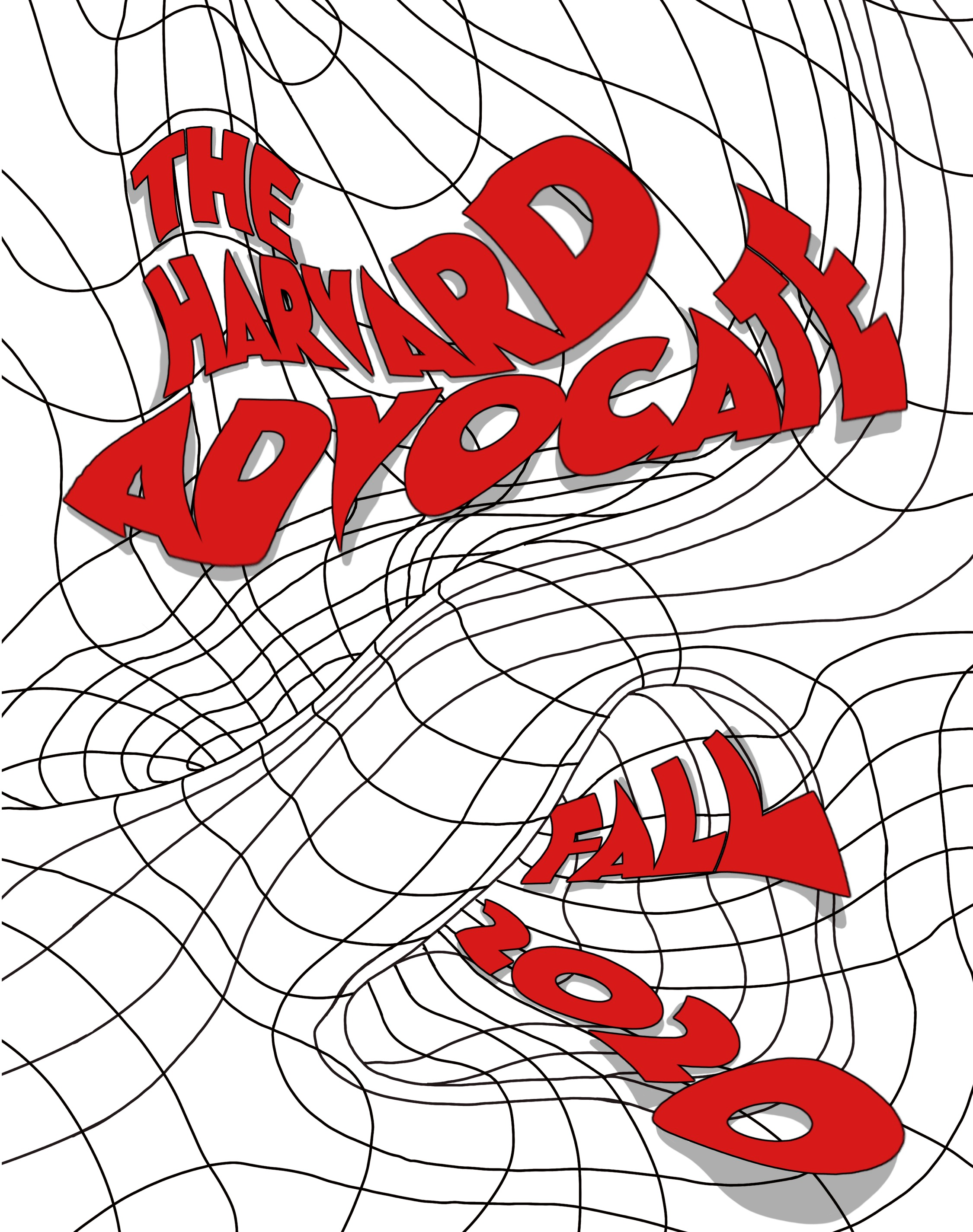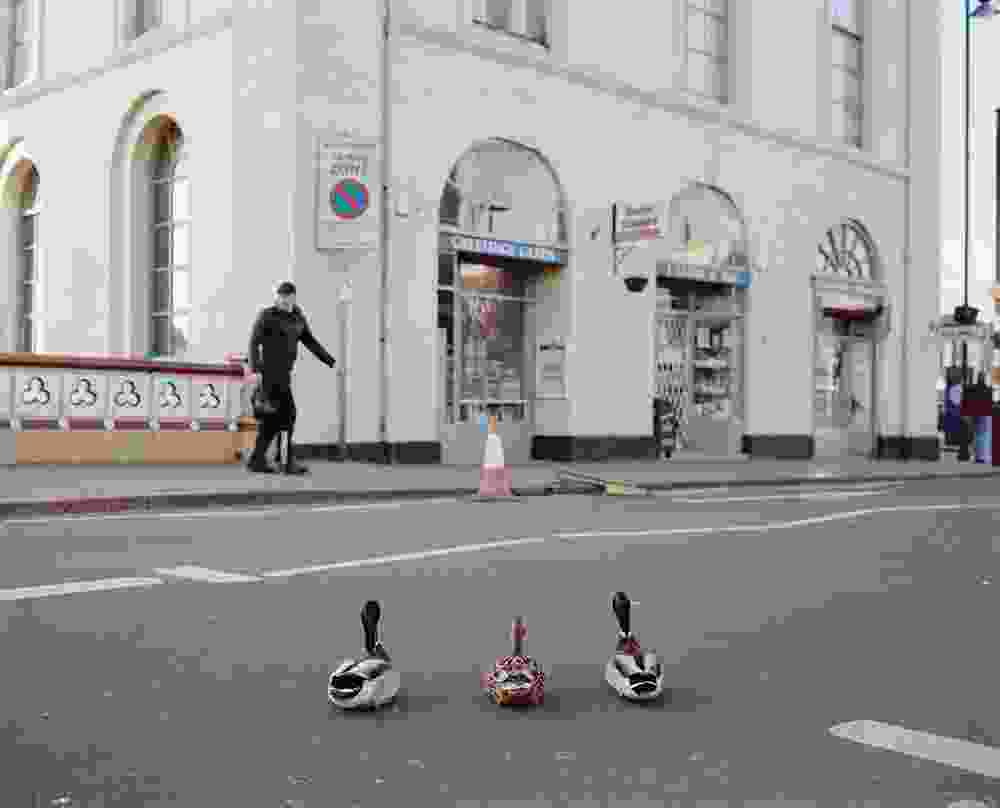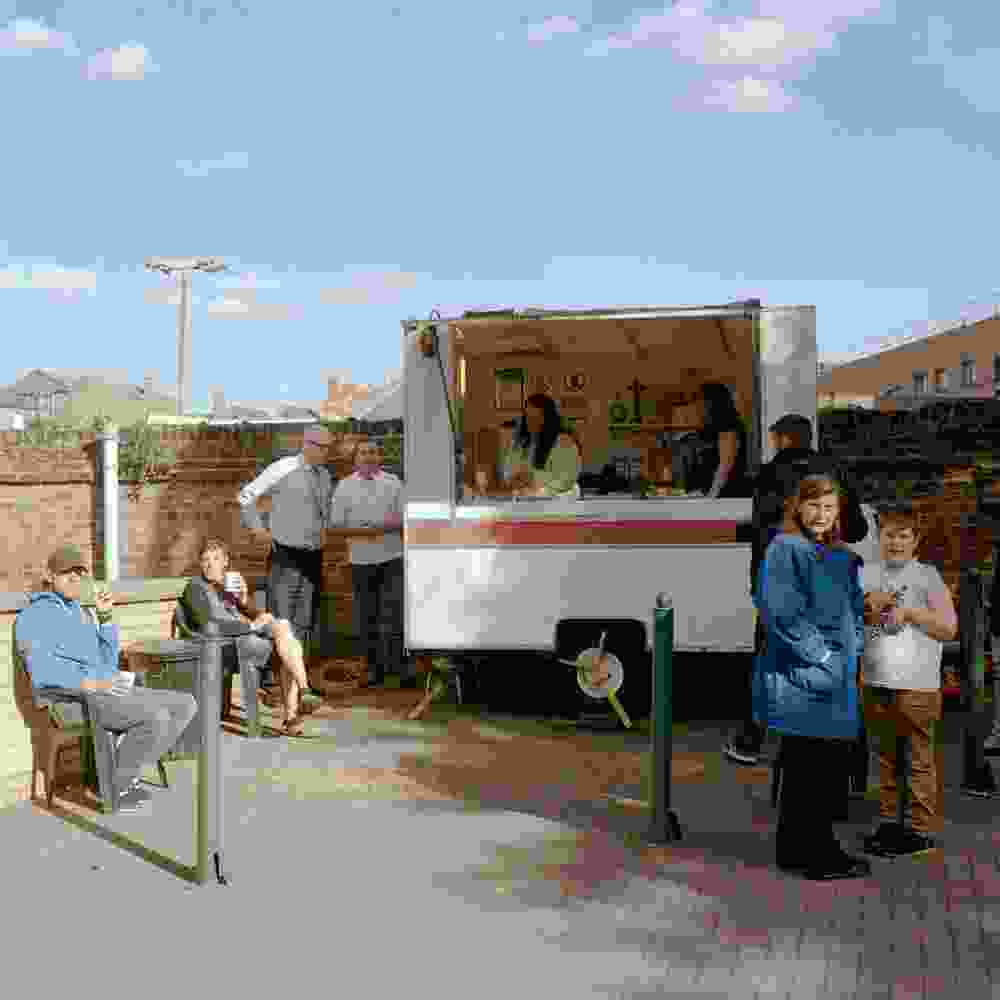Fall 2020 Issue - The Harvard Advocate

Fiction • Fall 2020
Translated from the French by Javier Arango
Translator’s Note: Michèle Audin is a mathematician, author, and member of the literary group known as Oulipo, which has included writers such as Raymond Queneau and Georges Perec. Since 1960, Oulipo authors have sought to explore connections between literary form and content by imposing structural and stylistic constraints on their writing, resulting in playfully experimental language-games and boundary-pushing works. In this text, Audin, who is the biographer of mathematician and women’s rights activist Sofia Kovalevskaya, draws upon her own interest in the history of mathematics while honoring the Oulipean tradition, blending elements of fiction and non-fiction throughout. In true Oulipean fashion, “Burned Letters” contains a lipogram, a section written entirely without the letter “e”, evoking Perec’s A Void, which employs the same technique (can you find it?). The result is a joyful and ingenious exercise in literary imagination. Audin writes: “The historical context comes from my book Remembering Sofya Kovalevskaya (Springer 2011, for the English translation) and Reinhard Bolling’s article 'Deine Sonia: a reading from a burned letter' (in Math. Intelligencer in 1992). The novelistic part is inspired by the 'story of the man who bought the vase of the passion' in Life: A User’s Manual by Georges Perec, and by A Void, also by Georges Perec.”
--J.A.
Fiction • Fall 2020
I’m always letting men infect me. Before Andrew I dated an actor. Alex. After a fortnight together he’d given me ringworm. He was a mountain-range hiker of low-range ability, and prior to our coupling he’d spent a month schlepping around the wet Hebrides. The diagnosis took a toll on his libido, and our dates would usually conclude with us sitting in my bed, me palpitating, him pantomime-yawning, delicately removing my hand from his thigh. Such was my desperation that when he told me he had ringworm, and showed me the taupe circles on his inner thighs I decided to say I didn’t care, and climbed on top of him. He always preferred it with me on top, which I think now was less an enjoying-the-view thing and a more a path-of-least-resistance thing. For the next three months we passed our ringworm back and forth like a logbook, and at the beginning of the fourth month he told me that, while he was attracted to me, he wasn’t wildly attracted to me, and he didn’t love me. We broke up three weeks later and then he moved to Portugal.
Fiction • Fall 2020
I’ve forgotten most of that year: the hospital’s confusing architecture, the nights I woke and wandered the house to find my wife wandering the house too, like two ghosts surprised and even frightened to find the other haunting that same space. It’s lost the power of its particularity and become something else. A thing I sometimes talk about, finally, but only to say, yes, that happened, and now I am here. It has softened to a blur. It has found its place.
And yet I remember that the television played the news, and that the news described the murder of a family by their own son somewhere thousands of miles away in Arkansas. I remember that too—the place where it happened and the odd way the newscaster pronounced the word, <i>Arkansas</i>, as if he had never heard of such a place before. I even remember the image of the boy on the screen, and his name, although none of these things are very important. And I remember wondering what he felt—not the boy, but the man telling the story—and if it was anything at all like what I felt as I sat in the waiting room.
I was not at the hospital. That place had come and gone, and we had already said our good-byes. It was late February and the sun had returned so decisively that the whole town glowed. Outside people covered their eyes as they walked with their coats unbuttoned, hands shielding faces and heads bowed. Inside the floor was wet with dirty snow and all the chairs were full either with people or coats, mittens, hats, bundles that reminded me of sleeping children.
The silent comradery was familiar. The resentment too, at having to be stuck with these particular people and their particular smells and voices and nervous techniques for holding themselves apart from the rest. The light from the plate glass fell across the faces and made each one seem knowable, but I had been through this each year and knew it was nothing transcendent. I was just waiting for a mechanic to change my oil. The man on the TV had moved on to something else, if he had ever been talking about it in the first place. The story could have been something I heard about later, and then matched it to that place, fit them together because they seemed to belong side by side like a fork and knife.
Directly across from me the old man’s lip was split and I remember wondering if he even knew, if he had somehow moved past registering small pains like that; and I remember the younger woman, not the one who would show me the photographs, but the other one, the half-asleep one who I decided was beautiful. Three of them sat in a row across from me, the old man, the woman, and then the other woman, the one who pulled out her phone and moved across the room to sit right up next to me. “Do you want to look at some pictures?” she asked. She was the one still wearing her coat. In fact, it was still zipped up, and spotted with patches of duct tape to cover the pinholes caused when you stand so close to a bonfire. I had seen that before, lots of times, but never quite so many. I imagined her standing so close that the heat caused some suffering.
She said, “Look at this one.”
“I think my truck is almost ready,” I said. It was right there, through the window in the mechanic’s bay, with the hood open. I had been driving it around for a month with one of the dashboard lights blinking and decided, finally, that enough was enough. It had probably been the sun that had done that—reorganized things in my head, given me a conviction that this was a thing worth doing. But also I didn’t want to go back home. I had told my wife I was going out, had slammed the door and then stood in the cold sunlight without an idea of where to go and what to do. The garage had been my salvation.
“This one is a cat,” the woman next to me said, but I couldn’t see a cat. It was just a single eye and maybe not even. Something had happened to the colors too. She had been messing with it, reversed it. To me it looked like some kind of geographical feature, a slate grey ocean with an island in the middle of it, taken from some crazy machine circling the earth. It made me feel small as a bug, but not necessarily insignificant. After all, I was floating above all of it.
“Her name is Tabitha,” she said, but it looked like a place you could go to if you had enough money.
The other two people sat as if on the subway. The old man folded his arms. The woman let her eyes fall completely closed. Water collected around their boots. It was clear that I was on my own in this.
“And this one,” she said, “this one is the cat again.”
“Tabitha,” I said, because I was worried I had already forgotten. I wanted to hold onto that name for some reason.
She flipped to the next picture with a casual flick of her thumb. Her fingernails were bitten raw and there was something shrill, almost hysterical, in her voice, as if she were trying to prove something to me. Maybe she thought I wasn’t listening, wasn’t looking, but I was. I was trying pretty hard. It’s just that I wasn’t seeing what she was seeing.
The torqueing of the air drill occasionally interrupted us and we’d stop and look out at my truck up on the lift. Whatever they were doing was beyond me, but I knew they would finish up soon and then I’d sign the paper and pay my money and tell them thank you and that very small part of my life would be all right.
“This one is a good one,” she said.
“A cat,” I said, a question and a statement both. I expected her to say something smart-alecky, but she didn’t. I could tell she was trying hard to keep her hands still, the phone steady. It shimmied a little bit in her palm. Tattoos spiraled from her wrist to her elbow. They reminded me of vines, an invasive species.
“Right,” she said.
“I don’t have any,” I said.
“What?” she asked. “Pictures? You don’t have any?”
“Cats,” I said.
“You don’t look like a cat person,” she said, and she seemed to consider me. “You don’t look like a dog person either.” She smiled a little. “You look like a person though.”
“I am that,” I said. “You’ve got me.”
“I knew it,” she said.
My eyes fell back to the phone.
“It’s all about framing it the right way,” I said.
I had opened my mouth to give her some kind of vague compliment, but now it was all fumbling away from my intention. “Like, you can control it all. By you I mean the photographer. I guess what I’m saying is that what’s left out is important.” It seemed very crucial that she understand this and I wondered if maybe I was the crazy one, the one forcing myself on her. She’d tell this story to her boyfriend or mother or something: the man choking up in the gas station as he talked about technique.
“I don’t know about that,” she said, “but isn’t he cute? You can see me in his eyes. The shadow of me.”
I looked closer and yes, there it was, the outline with her hands raised to her face. I would not have noticed it without her pointing it out. She flipped to the next and the next. Another cat, or maybe the same one. She wasn’t explaining them anymore. In the background a couple of lawn chairs rested on their sides, as if blown by the wind or knocked down by someone stomping around. That’s what I was interested in: all the debris in the background. The filter made it look like the trees were on fire. The cat was in one of the trees. And then it was gone because she had flipped the picture again to something I couldn’t recognize.
I could hear the mechanics yelling happily about something or other and then the air drill again. It sounded a little dangerous, like you could put it through your hand if you weren’t careful. I was trying really hard to concentrate.
“That’s my vag,” she said.
I sat looking at it. It didn’t seem like anything at all.
“A different kind of pussy,” she said, but she wasn’t smiling anymore.
“Really,” I said.
“Yes,” she said. “Can’t you tell?”
If she had told me it was a stream or water or the close-up surface of a table top I would have said, oh sure, fine, and been ready for the next one. The people across from us were doing their best not to look, to appear not to look, and I had the oddest feeling: that it was us and them, me and this woman against all the rest, including my wife, who was probably in bed at home on a Saturday afternoon. I thought about driving through the snow on my way here with my hand blocking the sunlight, how it had seemed to swallow me up until it felt like I was dissolving. The drives back and forth to the hospital had all been in the dark and that had made them a little easier, to do all of that submerged in the darkness.
“So okay,” I told here. “Here we are.”
“Insightful,” she said. “Perfect.”
I thought of my wife waiting for me, how changing the oil might prove something to her and maybe to me. It might open a door, so to speak. I liked to imagine her doing something similar: boxing up all that stuff in the back room, maybe, although it was too soon—I thought then that maybe it would always be too soon. Reaching across the bed to touch me. I thought about how you could sit across a kitchen table from someone and see the same exact thing in them as you saw in yourself, the same mess, and then decide casually, with a kind of shrug, to hate them with all the effort you could give. That’s the kind of thing that would happen late at night, when one of us would find the other. “You don’t believe me,” the woman said.
“I believe you,” I said.
“In the tub,” she said.
Maybe I was staring. I’m not sure. Or maybe I was focused on my truck. But a little irritation had found its way into her voice. “It looks like nature photography,” I said. I could see roots splitting in all different directions. “It looks underground.”
Because I had thought of the permafrost ice caves and how it had felt in there looking up. Supposedly it was the remains of a prehistoric lake. A frozen snapshot, my brother-in-law had called it. We had traveled down there once and seen it all: the ice and fossils and giant slabs of exposed rock. The lake was long gone, but you could see the underside of it still, and you felt like it all might come crashing down on you too. At least that’s how I had felt, but I think my wife had felt that too. She had held my hand while we navigated the terrain.
The lake had probably covered the entire ridge, made the whole landscape one vast long plain. He belonged to the Army Corps of Engineers and seemed to know what he was talking about, had named the bones and the rocks as we moved deeper inside. As he talked about the lake he had spread his arms to show how big the thing had been, but all it had done was show off his own strength, his broad chest and arms. I remember being impressed by that, and the way he spoke, as if this were a secret he was sharing. He stood with his arms spread apart and smiled. Water, he said, was the great equalizer. I remember my wife and I nodding at that like it was wisdom we could use in the coming months. You could see the fossils in the walls standing out white and ethereal in the lamp radiance. For some odd reason it occurred to me that this woman, the woman next to me in the waiting room, should know all of this—that it was selfish of me to keep it to myself. But I kept it to myself. She leaned in closer and said something else I didn’t catch. Or I don’t remember it. She was trying to pull her phone back, but I had a hand on it too. Just to steady the picture.
“You’re lying,” I said. For some reason I was laughing.
“No,” she said. She was laughing too, although maybe not.
Poetry • Fall 2020
Last week, scientists found a new moon:
a second one, peculiar and small.
The poets will be excited. Maybe now
they can write about the moon without consequence
since it will be new, and free of tropes.
Perhaps they will hang on it like honey.
There’s a part of me that thinks if we can get a new moon
then maybe anything could happen. Like maybe I could hand you


